Marseille, a bustling metropolis on the Mediterranean coast, beckons travelers with its rich tapestry of history, culture, and modern urban vitality. Founded by Greek sailors in 600 BC, the city has witnessed centuries of transformation, leaving behind a captivating blend of architectural wonders, vibrant art, and a culinary scene that tantalizes the taste buds.
From the iconic Notre-Dame de la Garde basilica perched atop a hill, offering panoramic city views, to the contemporary MuCEM showcasing Mediterranean cultures, Marseille’s architectural landmarks stand as testaments to its storied past and artistic prowess. Its vibrant art scene pulsates with creativity, with museums, galleries, and street art adorning the city’s streets.
Historical Significance
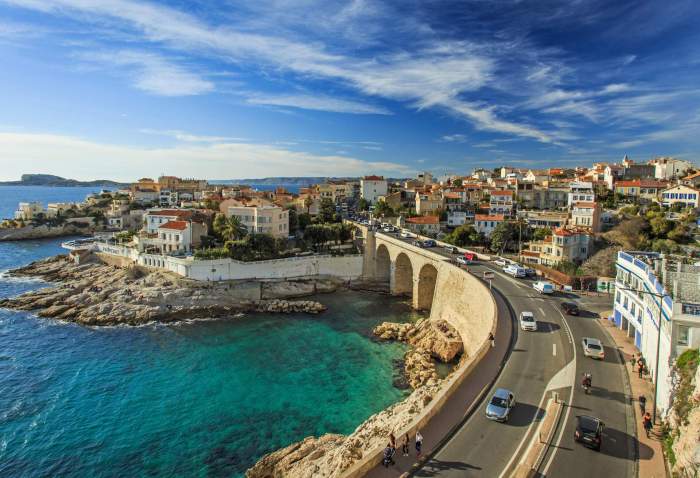
Founded by Greek sailors around 600 BC, Marseille has a rich and storied history. It quickly became a major port city, serving as a gateway between Europe and the Mediterranean. Over the centuries, Marseille has been ruled by various powers, including the Romans, the Franks, and the French.
Throughout its history, Marseille has played a vital role in trade and cultural exchange. Its strategic location on the Mediterranean Sea made it a hub for commerce, connecting Europe with Africa, Asia, and the Middle East. Marseille has also been a melting pot of cultures, with influences from all over the world.
Marseille, a vibrant port city in southern France, offers a rich blend of history and culture. Its picturesque Vieux-Port is a must-see, while the Musée d’Histoire de Marseille showcases the city’s past. If you’re looking for a unique shopping experience, head to Swiss Serpong , a mall that combines Swiss architecture with Indonesian charm.
Back in Marseille, be sure to savor the city’s delectable seafood cuisine, especially the famous bouillabaisse.
Greek Founding
In the 6th century BC, Greek sailors from Phocaea established a trading post on the site of present-day Marseille. They named the settlement Massalia, which means “city of the Massaliots.”
Roman Conquest
In the 2nd century BC, Marseille came under Roman rule. The Romans renamed the city Massilia and made it a major port and trading center. Massilia became an important center of Roman culture and learning.
Medieval Period
In the Middle Ages, Marseille was ruled by a succession of powers, including the Franks, the Visigoths, and the Arabs. The city eventually became part of the Kingdom of France in the 15th century.
Modern Era
In the modern era, Marseille has continued to be a major port city. It is also a center of industry, commerce, and culture. Marseille is home to a number of universities, museums, and theaters.
Cultural Heritage
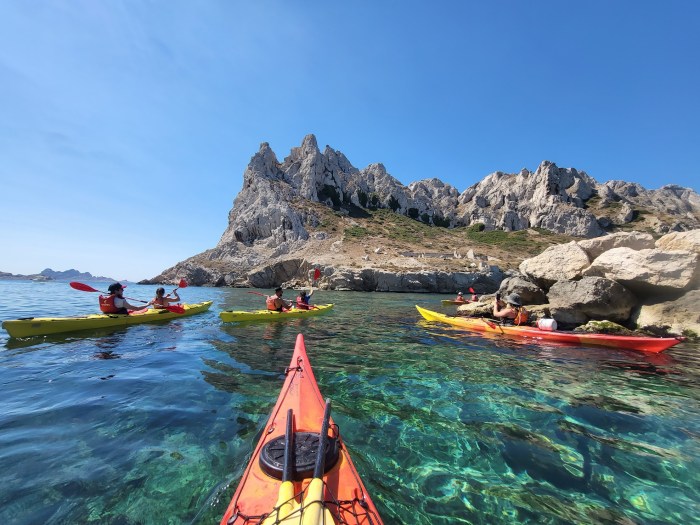
Marseille’s rich cultural heritage is a tapestry woven from the threads of its diverse population. Over centuries, the city has welcomed immigrants from around the Mediterranean, each bringing their own unique traditions and customs. This cultural melting pot has created a vibrant and eclectic city, where the old and new, the East and West, blend seamlessly.
Marseille’s art scene is as diverse as its people. The city boasts a number of world-renowned museums, including the Musée des Civilisations de l’Europe et de la Méditerranée (MuCEM) and the Musée d’Art Contemporain (MAC). These institutions showcase a wide range of art, from ancient artifacts to contemporary masterpieces.
Street Art
In addition to its museums, Marseille is also home to a thriving street art scene. The city’s walls are adorned with colorful murals and graffiti, creating a vibrant and ever-changing outdoor gallery. Street art has become an integral part of Marseille’s cultural landscape, and the city has even created a dedicated street art festival, the Open Walls Festival.
Culinary Traditions
No discussion of Marseille’s cultural heritage would be complete without mentioning its renowned culinary traditions. The city is famous for its seafood dishes, which are made with fresh, locally caught fish and shellfish. Bouillabaisse, a traditional fish stew, is a must-try for any visitor to Marseille.
The city is also known for its pastis, an anise-flavored liqueur that is often enjoyed as an aperitif.
Architectural Landmarks: Marseille
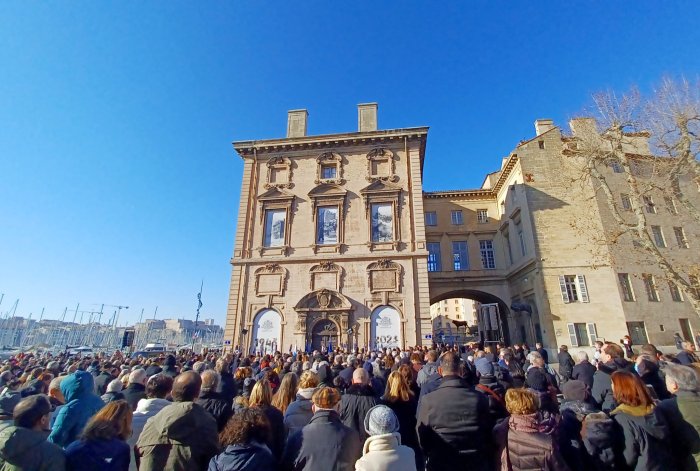
Marseille boasts an array of architectural landmarks that reflect its rich history and vibrant culture. These iconic structures showcase diverse architectural styles, from Romanesque to contemporary, each with its own unique story to tell.
The following table highlights some of Marseille’s most notable architectural landmarks:
| Landmark | Architectural Style | Historical Significance | Cultural Importance |
|---|---|---|---|
| Notre-Dame de la Garde Basilica | Romanesque Revival | Built in the 19th century, it is a symbol of Marseille and offers panoramic city views. | A pilgrimage site and a popular tourist destination. |
| MuCEM (Museum of European and Mediterranean Civilizations) | Contemporary | Designed by Rudy Ricciotti, it opened in 2013 and houses collections on Mediterranean cultures. | A cultural hub that hosts exhibitions, events, and educational programs. |
| Palais Longchamp | Neo-Baroque | Built in the 19th century, it originally housed the Museum of Natural History and the Museum of Fine Arts. | A grand architectural ensemble that is now a popular public space. |
| Cathédrale de la Major | Neo-Byzantine | Constructed in the 19th century, it is one of the largest cathedrals in France. | An important religious and historical landmark. |
| Fort Saint-Jean | Medieval | Built in the 17th century, it was once a military fortress and now houses cultural institutions. | A historic landmark that offers stunning views of the Vieux-Port. |
Economic Profile
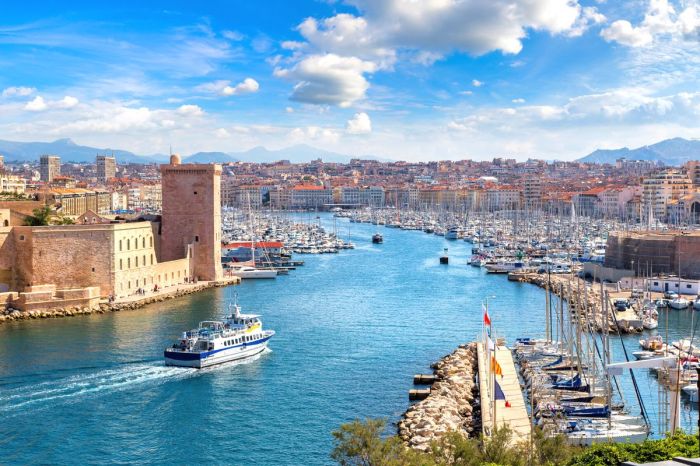
Marseille boasts a diverse and robust economy, with key industries driving its growth and prosperity. Shipping, tourism, and manufacturing form the backbone of the city’s economic landscape, contributing significantly to its GDP and employment.
Major Industries
Shipping and Port Activity:
- The Port of Marseille is a major gateway for international trade, handling a vast volume of goods and containers annually.
- It serves as a crucial hub for maritime traffic, connecting Marseille to global markets and facilitating import and export activities.
Tourism:
- Marseille’s rich cultural heritage, vibrant atmosphere, and picturesque setting attract millions of tourists each year.
- The city offers a diverse range of attractions, including historical landmarks, museums, beaches, and festivals.
Manufacturing:
- Marseille has a strong industrial base, with sectors such as petrochemicals, shipbuilding, and food processing playing significant roles.
- The city’s proximity to raw materials and access to skilled labor contribute to the success of its manufacturing sector.
Infrastructure and Transportation
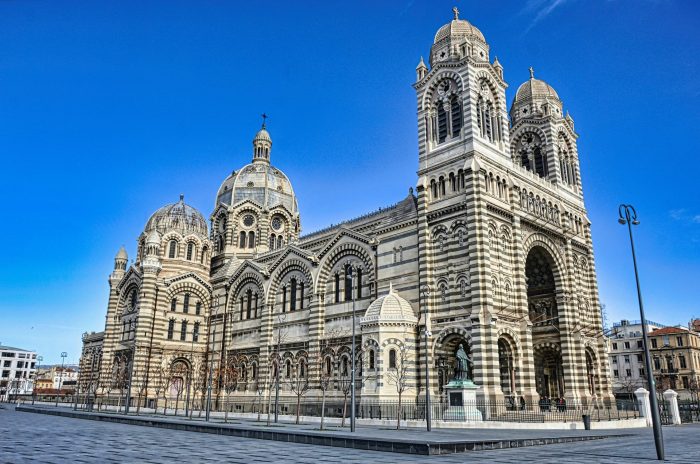
Marseille boasts a robust transportation infrastructure that connects it to major cities across France and beyond. The city’s international airport, Marseille Provence Airport, serves as a gateway to the Mediterranean region, with flights to destinations throughout Europe, North Africa, and the Middle East.
Marseille is also a major rail hub, with high-speed TGV lines linking it to Paris, Lyon, and other major French cities.
Public Transportation
Marseille’s public transportation system is extensive and efficient, providing residents and visitors with a convenient way to get around the city. The network includes buses, trams, and two metro lines that serve all major neighborhoods. The city has made significant investments in improving connectivity and accessibility, including the implementation of a bike-sharing program and the expansion of pedestrian-friendly zones.
Marseille, a vibrant city on the French Riviera, offers a captivating blend of history and culture. For a memorable stay, consider exploring the luxurious singapore hotel options. These hotels provide exceptional accommodations, amenities, and services that will enhance your Marseille experience.
From panoramic city views to world-class dining, the singapore hotel in Marseille promise an unforgettable and indulgent stay.
Transportation Hub
Marseille’s strategic location on the Mediterranean Sea has made it a vital transportation hub for the region. The city’s port is one of the largest in France, handling a significant volume of freight and passenger traffic. Marseille is also a major cruise ship destination, with numerous cruise lines offering itineraries that include stops in the city.
Urban Planning and Development
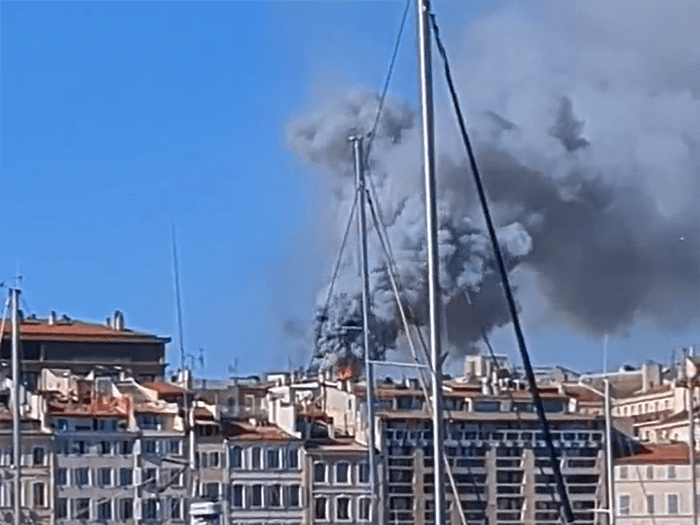
Marseille has implemented various urban planning strategies to revitalize neighborhoods and promote sustainable development. These efforts aim to improve the city’s livability, economic vitality, and environmental resilience.
Marseilles, a bustling city on the French Riviera, offers a rich blend of culture, history, and cuisine. Its vibrant streets and picturesque harbor create an unforgettable atmosphere. While Marseille is a must-visit destination, those seeking a tropical paradise may consider exploring Kuta Bali.
Known for its pristine beaches, vibrant nightlife, and ancient temples, Kuta Bali offers a captivating blend of relaxation and adventure. Despite the allure of distant shores, Marseille’s enduring charm ensures that visitors will always find something new to discover.
One key strategy is the “Euroméditerranée” project, a massive urban renewal initiative launched in the 1990s. This project has transformed the city’s former industrial waterfront into a vibrant mixed-use district featuring residential, commercial, and cultural spaces.
Housing
Marseille faces challenges in providing affordable housing for its residents. The city has implemented policies to increase the supply of social housing and promote mixed-income developments.
Green Spaces
Marseille is committed to increasing green spaces and improving access to nature for its residents. The city has created new parks and greenways and is working to enhance the biodiversity of its urban environment.
Infrastructure
Marseille is investing in its infrastructure to support its growing population and economy. This includes upgrades to transportation systems, energy networks, and water and sanitation services.
Social and Community Aspects
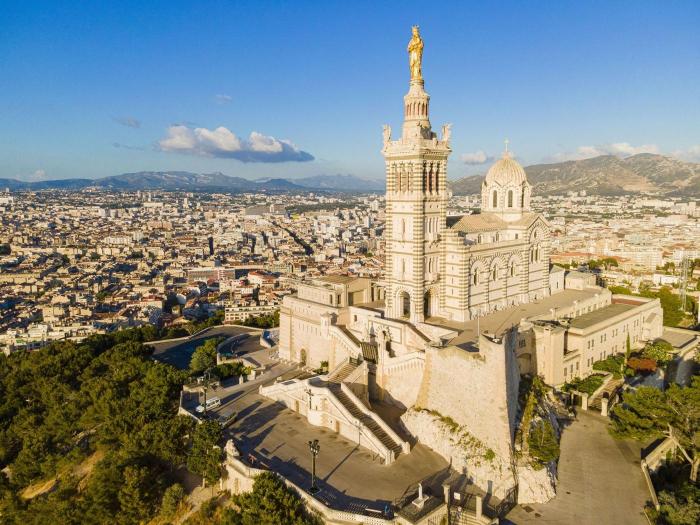
Marseille is a melting pot of cultures, with a population of over 2 million people from diverse backgrounds. This diversity presents both challenges and opportunities for the city.
One challenge is social inequality. Marseille has a high poverty rate, and many residents struggle to make ends meet. The city is also home to a large immigrant population, and some immigrants face discrimination and racism.
Community Initiatives
Despite these challenges, Marseille is also a city with a strong sense of community. There are many social welfare programs and community initiatives that work to improve the lives of residents.
- The city has a number of programs that provide food, housing, and other assistance to low-income families.
- There are also many community organizations that work to promote social justice and equality.
Cultural Events
Marseille is a vibrant city with a rich cultural heritage. The city hosts a number of cultural events throughout the year, including music festivals, art exhibitions, and theater performances.
- The city is also home to a number of museums and historical sites.
- Marseille’s cultural diversity is reflected in its cuisine, which is a blend of French, Italian, and North African influences.
Neighborhoods and Communities, Marseille
Marseille is a city of many neighborhoods, each with its own unique character. Some of the most popular neighborhoods include:
- Le Panier:A historic neighborhood known for its narrow streets and colorful buildings.
- La Joliette:A waterfront neighborhood with a mix of residential and commercial buildings.
- Le Prado:A wealthy neighborhood known for its luxury shops and restaurants.
Conclusion
Marseille is a city that captivates and inspires. Its unique blend of history, culture, and urban vitality makes it a destination that lingers in the memory long after the visit has ended. Whether exploring its ancient streets, admiring its architectural masterpieces, or savoring its delectable cuisine, Marseille promises an unforgettable experience.
General Inquiries
Is Marseille a safe city to visit?
While Marseille has areas with high crime rates, it is generally safe for tourists. As with any major city, it’s advisable to be aware of your surroundings and take precautions against petty crime.
What is the best time to visit Marseille?
The best time to visit Marseille is during the shoulder seasons (April-May and September-October) when the weather is pleasant and there are fewer crowds.
What are some must-try dishes in Marseille?
Marseille is renowned for its seafood dishes, particularly bouillabaisse, a traditional fish stew. Other must-try dishes include tapenade, a spread made from olives and capers, and navettes, boat-shaped pastries filled with orange blossom.